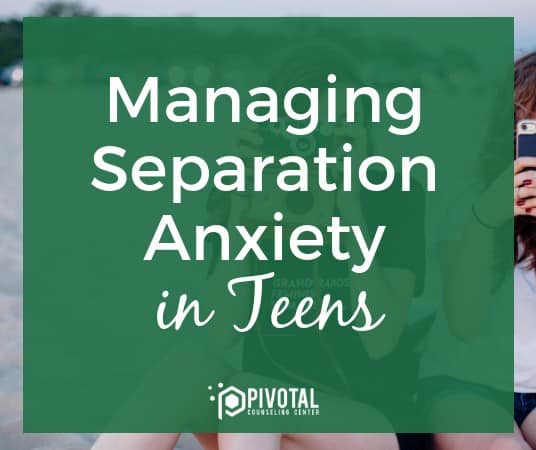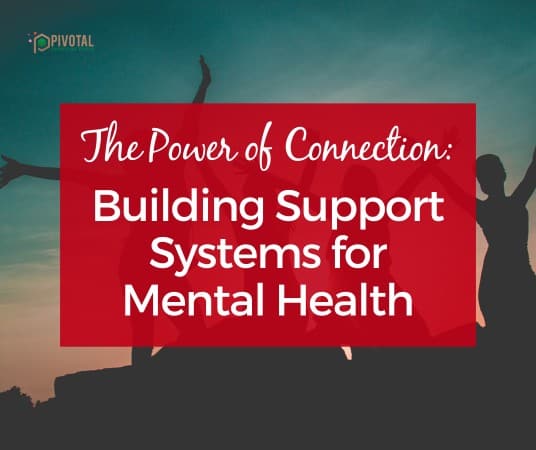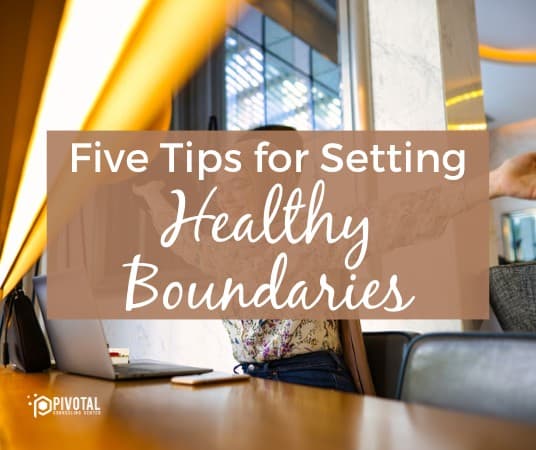
Anxiety comes in many different forms and can affect you in many different ways. The symptoms for each form can vary slightly from person to person and may depend on age, environment, and reason for anxiety. Anxiety can be caused by things like performance nervousness, social situations but what we’re going to cover today is separation anxiety. Specifically, how to manage separation anxiety in teens.
Separation anxiety can pop up out seemingly of nowhere; it can come right before a big change like moving away from home or going away to college, which can increase the difficulty of those already stressful transitions.
Here are FIVE ways to help manage separation anxiety.
-
EXPECT IT TO HAPPEN
Hopefully, you will never experience separation anxiety. But if you do, and you are prepared for it, you will be able to deal with it successfully. This might seem obvious, but preparing yourself for it before the time comes will help you to feel more in control of the situation. The best way to do this is to:
-
RECOGNIZE THE SYMPTOMS
Separation anxiety can have several different symptoms. They can hit you all at once, or one at a time. There’s no one single way that separation anxiety presents itself, so familiarizing yourself with all of the symptoms will help you to recognize them when and if they present themselves. Here are some examples:
- You obsess over going home for a visit: You want to go home for a visit to see your family and friends; that’s only natural. But if you think about it so much that you can’t think of anything else (good or bad), it may be a symptom of separation anxiety.
- You imagine the person being in the room with you: If the only thing that calms you down is imagining the person, who you miss desperately, being in the room with you, it may be a symptom of separation anxiety.
- You deliberate flunk out of school so that you can go home: This may seem extreme, but it happens. Wanting to go home and never have to leave again, even though you really wanted to go away to school in the first place, may be a symptom of separation anxiety.
-
DON’T KEEP IT TO YOURSELF
When you are dealing with separation anxiety–even if you aren’t quite sure–don’t keep it to yourself. Talk to the person you miss and tell them how you feel. Odds are, they’re missing you too. Just hearing that they miss you can make you feel better and help you to manage your anxiety.
You also want to be sure that you don’t close yourself off from your family or friends. It’s much easier to deal with separation anxiety when you have a solid support system around you. Just like social anxiety or test anxiety, you might feel embarrassed and not want to tell anyone, but sharing how you’re feeling with a loved one – someone who supports you and wants to help – is going to be a positive experience.
-
PLAN LOTS OF VISITS HOME, ESPECIALLY AT FIRST
Being away from home is difficult and often much harder than we anticipate. If you’re able to: plan a lot of weekends home especially at the beginning of your transitional period. Even if it feels like a waste of a visit because it is so brief, being around familiar people, especially those you are missing, will be helpful, and eventually, you will be able to go longer between visits without feeling like you’re overwhelmed with anxiety.
-
GIVE YOURSELF TIME TO DEAL WITH IT
Over time and with good support, you will be able to deal with your separation anxiety. Focus on giving yourself time and space, physically & emotionally, to learn how to deal with it. And remember we all get homesick from time to time.
Separation anxiety can be tricky. But you can prepare for it. Recognize the symptoms, don’t isolate yourself, share your feelings, plan frequent trips home, and give yourself time to adjust. You will be able to conquer your separation anxiety while enjoying your new found freedom.









